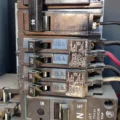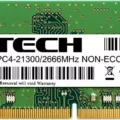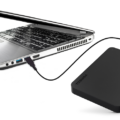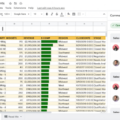Do you want to build your own network-attached storage (NAS) device? Then you’ll need the right hard drive to get the job done. Finding the best NAS hard drives can be daunting, as there are many factors to consider including storage space, speed, reliability, and affordability. Here’s a guide to help you find the perfect NAS drive for your needs.
Storage Space
The most important factor when choosing a NAS drive is storage space. The size of the drive depends on your individual needs; if you’re a home user, then a 3TB or 4TB drive should suffice, while a business may require something larger like an 8TB or 10TB NAS drive.
Speed
Speed is also an important factor when selecting a NAS hard drive. 7200 RPM drives tend to be faster than 5400 RPM drives, but they also generate more heat and consume more power. If you need maximum speed, consider an SSD instead of an HDD – these drives are up to 30 times faster than traditional HDDs and offer greater energy efficiency and silence.
Reliability
Reliability is key when it comes to choosing a NAS hard drive; after all, you don’t want your data to be lost due to hardware failure. Look for hard drives from well-known brands like Western Digital and Seagate that come with long warranties – this will give you peace of mind in knowing that your data is safe.
Affordability
Finally, affordability is also something you should consider when choosing a NAS hard drive. Generally speaking, higher capacity drives tend to cost more – so if budget is an issue then opt for a smaller capacity drive that will still meet your needs.
Now that we’ve discussed some important factors in choosing the best NAS hard drives, let’s take a look at some of our top picks:
• Seagate IronWolf Pro 20TB – This high-end enterprise-grade HDD offers plenty of storage space and fast speeds at 7200 RPMs as well as reliability thanks to its 5-year limited warranty.
• Western Digital Red – WD makes some of the most reliable consumer-grade HDDs on the market; their Red series offers plenty of storage with speeds up to 5400 RPMs plus a 3-year warranty for added peace of mind.
• WD Gold 4TB Enterprise Class – Another great option from WD for those who need maximum reliability; this enterprise-grade HDD comes with speeds up to 7200 RPMs plus a 5-year warranty for added protection against hardware failure or data loss.
• WD Red Pro WD6003FFBX 6TB – For those who need lots of storage in their home or office network, this 6TB HDD from WD offers plenty of space as well as fast speeds of up to 7200 RPMs plus a 5-year warranty for added reliability and peace of mind.
• Seagate EXOS 20TB – For those who need even more storage than what the IronWolf Pro offers, this 20TB HDD from Seagate offers plenty of space along with fast speeds of up to 7200 RPMs plus a 5-year limited warranty for added protection against hardware failure or data loss.
Ultimately, there are many great options available when it comes to finding the best NAS hard drives – it just depends on your individual needs in terms of storage space, speed, and reliability as well as budget constraints. We hope this guide has helped make your selection process easier!
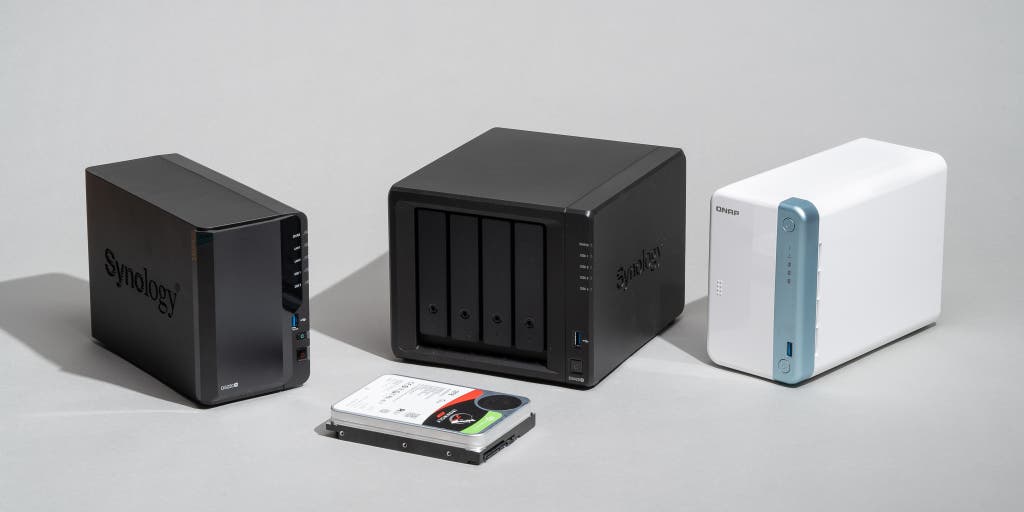
The Most Reliable NAS Hard Drive
The most reliable NAS hard drive is the Seagate IronWolf Pro 20TB. It offers impressive storage space and fast performance while still being surprisingly affordable. It’s designed specifically for network-attached storage, so it can handle the demanding workloads of media streaming, file sharing, and backups without fail. The IronWolf Pro also features advanced technology like RAID optimization, error recovery control, and rotational vibration sensors that help protect your data from unexpected power outages or disruptions. Additionally, it comes with a 5-year limited warranty for extra peace of mind in case anything does go wrong. Ultimately, the IronWolf Pro is an excellent choice for a reliable NAS hard drive that you can count on to keep your data safe and secure.
Finding the Best NAS Drive for Home Use
The best NAS drive for home use is the Synology DS220j. It is an affordable, two-bay network-attached storage solution that offers a great balance between features and performance. It supports up to 16TB of raw capacity, allowing you to store plenty of data. The DSM operating system is easy to use and offers a wide range of features, including cloud backup, video streaming, and media server support. Additionally, it comes with robust security features such as two-step verification and encryption technology. With its great value and reliable performance, the Synology DS220j is the perfect choice for home users looking for a reliable NAS drive.
Which is Better for a NAS: SSD or a Hard Drive?
An SSD is generally the better option for a NAS (Network Attached Storage). An SSD is significantly faster than a traditional hard drive, with read and write speeds up to 30 times faster. It also consumes less energy and produces less noise, making it more energy-efficient and quieter than an HDD. Additionally, an SSD is more reliable and durable than an HDD since it has no moving parts that can break down. Therefore, if you want the most performance out of your NAS, an SSD is the way to go.
Are NAS Drives Worth the Investment for Home Use?
A NAS drive is an excellent choice for home use, as it provides a convenient way to store and access files from multiple devices. With a NAS drive, you can create a secure, centralized storage solution that allows multiple users to access the same data simultaneously. Whether you’re sharing photos between family members or saving important documents, a NAS drive can make it much easier to collaborate on projects.
NAS drives are especially useful if you have multiple computers in your home or if you need access to files while away from home. Because they are always connected to the internet, you can easily access them from any device with an internet connection. It also ensures that your data is secure and backed up on the cloud, so you don’t have to worry about losing important information.
In addition, many NAS drives come with useful features such as media streaming capabilities, remote file access, and backup solutions. All of these features make it easier for users to manage their data and keep their files safe.
Overall, a NAS drive is worth investing in for home use if you need a reliable and secure way of storing and accessing your data. The added features make it even more attractive for those looking for an easy way to share information between devices and family members.
How Much RAM Is Necessary for a NAS?
The amount of RAM you need in a NAS depends on the type and scale of operations you plan to use it for. For basic home use, 4GB or 8GB should be enough. If you plan to use the NAS for business purposes, then 16GB or more is recommended. This is because multiple users accessing and saving work at the same time can be very demanding on the RAM. When selecting your RAM size, consider what sort of tasks you will be running on your NAS, as well as how many people will be using it.
Do NAS Hard Drives Have Longer Lifespans?
NAS hard drives have been designed specifically to last longer than their desktop counterparts. Unlike desktop hard drives, NAS hard drives are built to run continuously for weeks on end. Additionally, the RAID setup used in NAS systems combines multiple drives into one single logical unit, which provides data redundancy and helps protect against drive failures. This means that any single drive failure will not cause a total data loss as the redundant data stored on another drive will still be available. Therefore, when used correctly and in combination with regular maintenance and backups, NAS hard drives should last longer than desktop hard drives.
The Lifespan of a NAS Hard Drive
The life expectancy of a Network-attached Storage (NAS) hard drive can vary significantly depending on the quality of the drive and how it is used. Generally speaking, the average lifespan of a NAS hard drive is between 3 and 5 years. However, some drives may last longer than this if they are well-maintained and not subjected to prolonged periods of heavy usage. Additionally, newer models tend to have longer lifespans due to advances in technology.
It’s important to note that most hard drives will begin to show signs of wear over time, such as slower performance or application errors. If you notice these symptoms in your NAS hard drive, it is time to consider replacing it with a newer model before it fails completely. Additionally, regularly backing up your data can help protect against data loss should your hard drive fail prematurely.
Conclusion
In conclusion, the best NAS hard drives offer a balance of storage space, speed, reliability, and affordability. The Seagate IronWolf Pro 20TB is a great choice for those looking for high performance and durability. For media streaming, the QNAP HS-264 is an excellent option. In terms of value for money, the QNAP TS-251B offers a great feature set at an affordable price. For budget-conscious users, the TerraMaster F2-210 is a great choice. Finally, if you’re looking for a 4 or 5-bay drive, the Synology DS420j and TerraMaster F5-422 are both excellent options. Ultimately, choosing the right NAS hard drive depends on your needs and budget.



